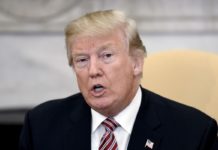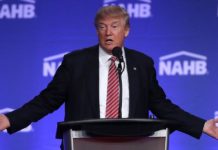World leaders aren’t taking Donald Trump’s trade barbs lying down. After the US president said Germany and Japan are gaming foreign-exchange markets to win favourable trade terms, Japanese Prime Minister Shinzo Abe joined German Chancellor Angela Merkel on Tuesday in pushing back and leading a global counter-charge to the accusations.
“A massive clash is starting to emerge with Trump willing to get into major geopolitical spats with China and other countries to advance his ‘America First’ agenda,” Mark Leonard, director of the European Council on Foreign Relations, said in a phone interview.sparks that have dominated the initial days of Trump’s presidency have set the stage for increased tensions over global trade and currency regimes. Decades of economic ties are at stake. Signs that the US will favour bilateral trade agreements at the expense of multilateral deals have forced world leaders to define their own red lines, and forge new alliances.
Trump has already shown that he can shift swiftly from campaign tweet to US policy, opening an early front with Mexico in a push to impose a tax on imports from there to pay for a border wall. That means no one can afford to take his threats lightly.
Abe told parliament that it’s inaccurate to say that Japan is devaluing the yen, and that he would explain Japan’s monetary policy to Trump if necessary. He’ll get a chance to do so when he meets Trump in the US next week. Trump had said on Tuesday that China and Japan “play the money market, they play the devaluation market and we sit there like a bunch of dummies.“
Merkel rejected a charge from Peter Navarro, the head of the White House National Trade Council, in the Financial Times that Germany’s excessive trade surplus is a sign of a “grossly undervalued” currency. The euro’s exchange rate was the province of the European Central Bank and the German government had long upheld the ECB’s independence, Merkel told reporters in Stockholm on Tuesday.
‘Strive to Trade’
“We strive to trade on the global market with competitive products in fair trade with all others,” said Merkel, who is campaigning for a fourth term while presiding over the Group of 20 countries this year on a platform of free trade. She plans to host Trump at a G-20 summit in July, two months before Germany’s election.
As the trade barbs grow, so do new alliances. Merkel and Chinese Premier Li Xinping last week talked by phone and spoke out in favour of closer trade ties, signalling a global pact opposed to Trump’s protectionist agenda.
“Trump thinks in very zero-sum terms about winners and losers, but international trade is not about win-win,” Leonard said. “If he ends up precipitating a global recession and destroying a lot of jobs, he could end up with a Pyrrhic victory.”
May and Corbyn clash over Government’s response to Trump’s refugee ban
The next international gatherings may prove an opportunity for Trump. If his administration intends to take its trading partners to task on the subject of currency manipulation, real or imagined, a conventional forum to do that would be the G-20 meeting of finance ministers and central bank governors scheduled for March 17-18 in Baden Baden, Germany.
The G-20 has stressed in recent years the importance of avoiding competitive currency devaluations, though members have struggled to draw the line between clear manipulation and the foreign-exchange effects of central bank policy. On the side-lines of the G-20 meeting in Shanghai a year ago, the Bank of Japan’s unprecedented stimulus emerged as a source of worry for other nations.
‘Ignore or Correct’
Even as they defend their policies, leaders should be careful not to overplay their hands, said Klaus Baader, chief Asia-Pacific economist at Societe Generale in Hong Kong.
“How many times did Trump say he would label China a currency manipulator on his first day in office? It was pure rhetoric,” Baader said. “It’s like many things that are coming out of the White House. Rhetoric that cannot be implemented.”
And while the greenback fell at least 1.9 per cent in January against all major developed peers, it’s still up from Election Day.
“The paradox for President Trump is that his actual policies, such as fiscal stimulus, the border adjustment tax and a homeland investment act, are positive for the dollar,” said Athanasios Vamvakidis, head of G-10 foreign-exchange strategy at Merrill Lynch International in London. “As long as the US data remains strong, the Fed will be tightening, which is also dollar positive.”
Businesses leaders have a part to play in steering Trump away from potentially damaging policies, Jeffrey Immelt, the long-time head of General Electric Co., said in an interview with Bloomberg Editor-in-Chief John Micklethwait.
“What’s up to us is to navigate the system as it exists today, but at the same time communicating to the people that voted for Brexit or the people that elected President Trump to say, ‘Look, at the end of the day, if we want to create more jobs, we shouldn’t alienate everybody around the world,’” Immelt said.












